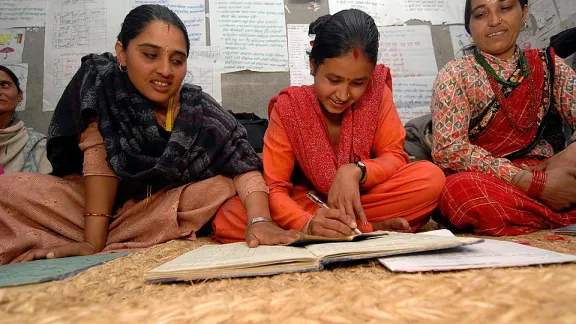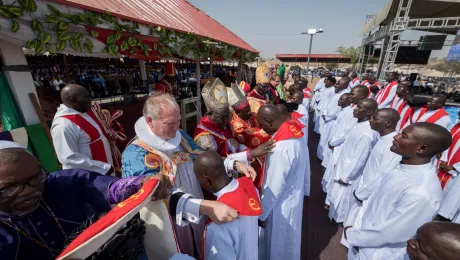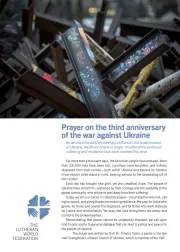
Members of the Gaurishankar Women Cooperative formed by LWF Nepal in Ramechham district. The successful audit of the LWF/DWS country program in Nepal was an important step to HAP certification. © LWF Nepal
LWF Values of Accountability and Transparency Underlined
Lutheran World Federation (LWF) General Secretary Rev. Martin Junge has called the certification of the LWF by a global quality assurance body a milestone for the communion of churches.
The Humanitarian Accountability Partnership (HAP) International announced on 17 January that the LWF had achieved certification against the 2010 Standard in Accountability and Quality Management, which seeks to ensure that the power of humanitarian actors is exercised responsibly with regards to disaster-affected communities.
“The certification underlines the LWF’s commitment to the values of accountability and transparency as expressed in the LWF Strategy 2012-2017,” Junge said. “At the same time it deepens the notion of accountability by providing a strong focus to the people the LWF works with.”
The certification by the humanitarian community’s foremost independent self-regulatory body covers all activities–including advocacy, development work and emergency preparedness and response–implemented by the LWF’s Department for World Service (DWS). It follows audits of DWS Geneva in November 2011 and DWS Nepal in December 2011, and is valid for three years.
The multi-agency initiative noted that only two corrective actions were needed and affirmed “the dedication and hard work of [LWF] management and staff” which had made possible “this major achievement.”
DWS Director Rev. Eberhard Hitzler said the HAP certification offered an external confirmation that the LWF is serving people in need in the best possible way by putting them at the center of its actions.
“The HAP certification has motivated all of us to constantly reflect and improve our strategy and action to ensure that people in need are accompanied and their rights respected and upheld,” he commented.
“We are committed to meet the highest standards for transparency in humanitarian aid also in the future,” Hitzler added and underlined the contribution of DWS international and local staff to establishing well-functioning programs and management systems.
Maryssa Camaddo, LWF/DWS Program Officer for Quality and Accountability, noted that the HAP certification process had been a learning process.
“Being accountable to the people we work with helps develop quality programs that meet the people’s rights and needs, and reduces the possibility of any abuse or corruption,” said Camaddo, who coordinates the department’s efforts to ensure accountability in its systems and practices.
“Accountability processes that are managed effectively help organizations to perform better,” she added.
Junge said he looks forward to continuing to take lessons from the certification process to the whole of the LWF. “This certification process has actually assisted us in expressing anew the important Lutheran insight of the accountability to the neighbor as an expression of faithfulness to God.”
(445 words)


